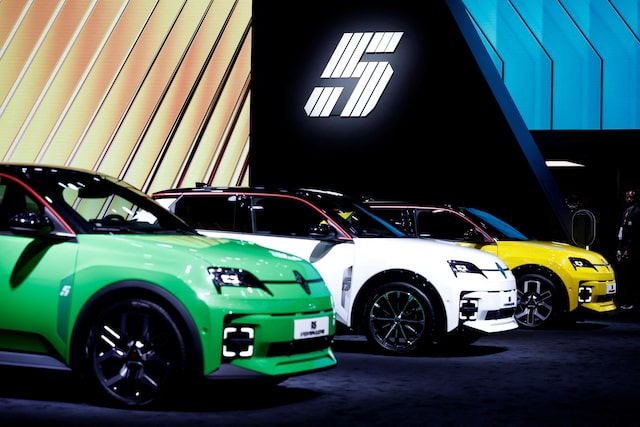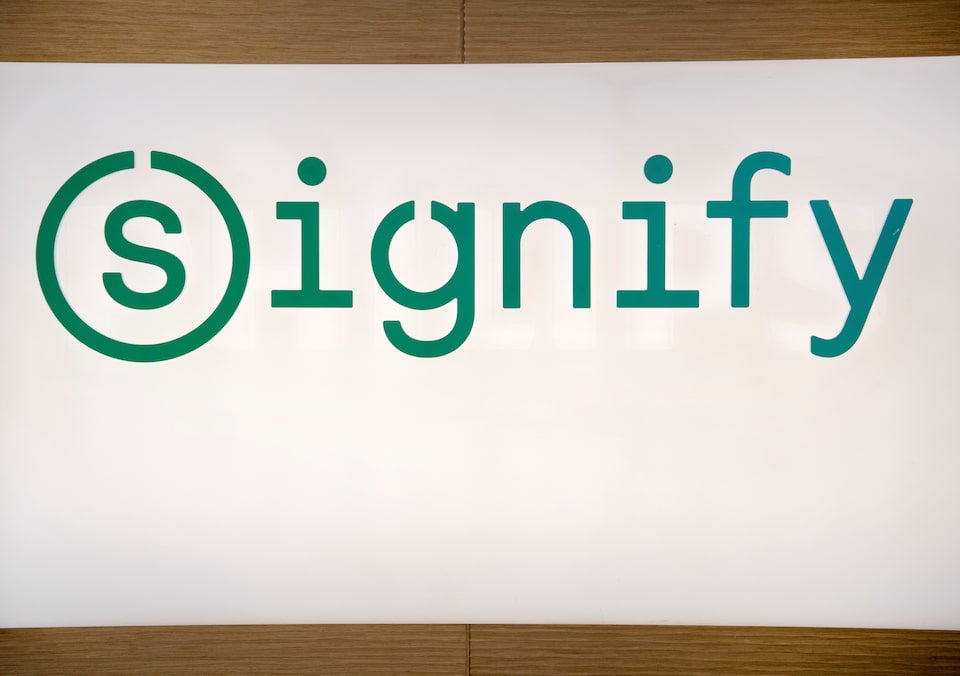Renault R5 E-Tech 100% electric cars are displayed on media day at the 2024 Paris Auto Show in Paris, France, on October 14, 2024. REUTERS
Companies
-
Mercedes-Benz Group AG
-
Renault SA
-
SAIC Motor Corp Ltd
-
Stellantis NV
-
Tesla Inc
Dec 19 (Reuters) – New car sales growth in Europe turned negative again in November, after showing a meagre growth in October, weighed by sharp declines in France and Italy, and a stagnation in Germany, industry data showed on Thursday.
The slowdown in electric vehicle (EV) sales was only partly offset by the growth of hybrid-electric car registrations, which topped petrol for a third consecutive month, according to the European Automobile Manufacturers Association (ACEA).
WHY IT’S IMPORTANT
European automakers are struggling with weak demand, high production costs, and managing the shift to EVs, while trying to fend off competition from China.
BY THE NUMBERS
The number of new vehicles registered in November in the EU, Britain and the European Free Trade Association (EFTA) fell 2% year-on-year to 1.06 million.
Among brands, registrations in the EU, Britain and EFTA at Volkswagen rose 2.8% and by 9.2% at Renault (RENA.PA), while they fell by 10.8% at Stellantis (STLAM.MI).
Sales of fully electric cars (BEVs) were down by 9.5% in November in the EU, driven by sharp declines in France and Germany, while those of hybrid cars (HEVs) rose by 18.5%, showing growth for a third month in a row.
Tesla and SAIC Motor (600104.SS), who became subject to the new EU tariffs on Chinese-made cars from November, saw sales in the bloc decline by 40.9% and 7.8%, respectively.
Electrified vehicles – either BEV, HEV or plug-in hybrids (PHEV) – sold in the bloc accounted for 55.8% of passenger car registrations in November, up from 51.8% in the previous year.
QUOTES
As the EU’s new carbon dioxide emission reduction targets loom next year, ACEA said a review of the regulation is needed and it is holding discussions with EU lawmakers about that.
“The transition was worked out on paper. On paper, it may be picture perfect, but reality is different”, ACEA Director General Sigrid de Vries told Reuters on Tuesday.
“In Europe, we have a couple of issues. We have very costly energy and electricity prices. We don’t have the raw materials and the supply chain that we need for electrification yet in Europe itself”, she added.
Reporting by Andrey Sychev and Alessandro Parodi in Gdansk; Editing by Sandra Maler





